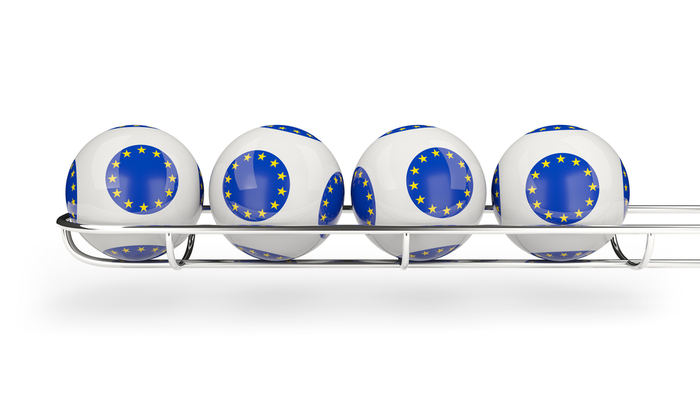The European Lotteries (EL), the World Lottery Association (WLA), and the North American Association of State and Provincial Lotteries (NASPL) recently hosted a webinar that looked at how lotteries have adapted their marketing strategies in innovative ways, not only as a response to the past year’s operational challenges but also to changing needs and player behaviour.
The webinar took stock of lotteries’ current situation when it comes to adapting their marketing campaigns and strategies, the lessons learnt from the pandemic and how to navigate the post COVID period.
EL President Hansjörg Höltkemeier said: ”The pandemic has no doubt had a huge impact on the lottery sector and on our lives as individuals. We must look at our own strategies to address the changing behaviour of our players. It is important to share our experiences but also discuss new ways to engage with the customers.”
WLA President Rebecca Paul Hargrove added: “Marketing is at the foundation of benefiting society and players are at the heart of marketing efforts. Life will eventually return to normal, but the pandemic has altered parts of our lives forever and we should be ready to embrace this change.”
The webinar noted that during the pandemic, not only did player behaviours and desires change, but so did the way lotteries operate, with ‘purpose-driven marketing’ becoming more relevant to players, resulting in social responsibility and sustainability becoming important elements for customers in many cases.
IGT, Pollard Banknote and Scientific Games presented their views during the webinar and showcased examples on their internal sustainability programmes, such as the use of FSC paper in their companies.
IGT explored ‘’the great consumer shift’’, highlighting how the pandemic led to the exploration and use of new technologies, from contactless services to biometrics and facial recognition. Pollard Banknote looked at ‘’synchronising the consumer experience’’, describing the importance of entertainment and social experiences for customers. Meanwhile, Scientific Games concentrated on ‘’growth in a safe and sustainable way’’, with an emphasis on people, planet and prosperity are its three main business operation pillars.
Shine Communication Sarl highlighted in its keynote that players look more and more for brands and companies that are aligned with their own beliefs and personal goals. With the idea of ‘’selling dreams’’ becoming more poignant than ever for lotteries, players can dream big while at the same time supporting local communities and benefiting society when they buy a ticket, something which was especially important during the pandemic.
Due to the impact of COVID-19, lotteries had to adapt how they offered games, while at the same time safeguarding player health and safety. Finnish National Lottery Veikkaus saw further digital transformations and further growth of e-instants. Online lottery sales increased, and many brands invested in contactless campaigns.
The webinar noted how innovation and creativity during the pandemic were vital for lotteries to continue operations in an effective way to engage with customers.
Technological advances were also exhibited in the webinar, as they meant lotteries were well equipped with the necessary tools to stay connected with customers. It was also stated lotteries have become ‘more resilient, agile, and more open to discussing new ways to engage customers as a result of the pandemic’.
The webinar reflected on lotteries’ support to local communities throughout the challenges of the past year, from offering relief and funding medical equipment to the creation of emergency funds and welfare aid, upholding national lotteries’ historic support and benefit to society in times of need. Making sure players were safe and taking care of their physical and mental well-being while playing lottery games were also important priorities for lotteries.
Several campaigns were presented during the webinar to highlight how lotteries adapted their marketing strategies to the pandemic and the positive approach they took.
In Israel, the priority for the national Lottery Mifal Hapais was a strong vaccination campaign. As there was a lot of scepticism, the national lottery decided to have a special draw for vaccinated or recovered COVID patients, to encourage more people to get vaccinated to benefit society.
The webinar noted that one of the biggest lessons learned was the need to react quickly to the changing environment (lockdowns, restrictions, closures of POS) and to adapt to the needs of players and retailers (selling and buying games in a safe environment).
Lottery innovation and creativity were sped up due to the pandemic, such as the development of online digital channels and working in different ways to create feel-good moments for players. One example during the webinar was a campaign by Nederlandse Loterij to quickly sell tickets for the New Year’s Eve draw as the country entered another lockdown in December, with quick thinking and creativity leading to an all-time sales record.
The webinar concluded that purpose-driven marketing has benefited from the pandemic, consumer habits and attitudes have changed, and the health crisis has shown that customers seek positivity and authenticity in brands and marketing campaigns. Lotteries are ‘more resourceful and resilient, quickly adapting their marketing campaigns to engage with players, particularly in the digital sphere’.
EL Secretary General Arjan van ‘t Veer commented: ”The pandemic has created new opportunities and means to engage with new players. Lotteries have become more resilient and flexible in their approach.
“Upon all the presentation during the webinar, I am proud on the National Lotteries to be able to continue their games and do good for the benefit of Society under unprecedented circumstances. They have learned so much that they will take to the future.”
WLA Executive Director Luca Esposito said: ”We have become more agile as human beings and as an industry. We have also adapted our ways of working from a business and marketing perspective but also from a community spirit.”



























